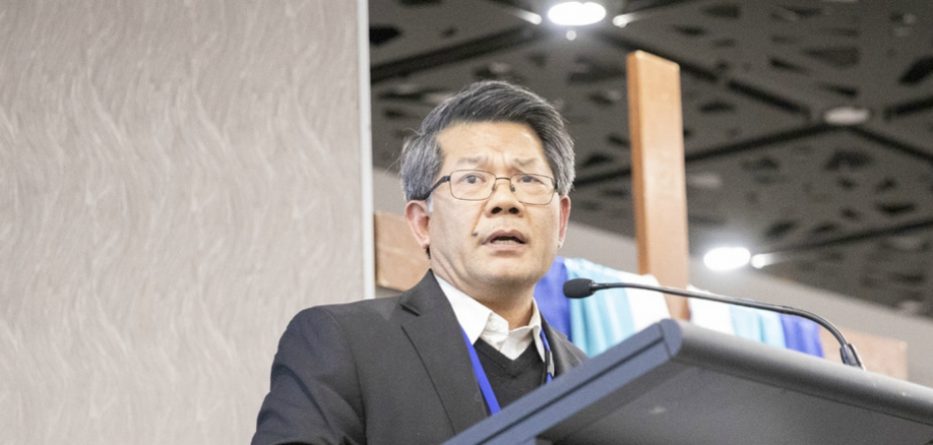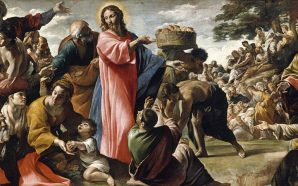Most Reverend Vincent Long Van Nguyen OFM Conv DD STL, Bishop of Parramatta
Address to the staff of the ACBC General Secretariat, Canberra
“Working for the Church in the Time of Perceived Irrelavancy”
Canberra, 22 July 2019
PART 1: INTRODUCTION
I’d like to thank you all for giving me this opportunity to reflect with you on our role as co-workers with the Bishops of Australia in this difficult time. As one fiesty old mother was reported to have made this or a similar comment to her daughter: “How can you work for a bunch of hypocrites?”
That is not an unusual comment – under the circumstances. If people were asked what they thought of the Catholic Church, their responses would be something in the order of ‘no credibility, focused on power, sexual abuse’ and other labels that are less than complimentary. There might be some positive comments. But overwhelmingly, there is a perception that the Church has lost touch and has become irrelevant in the lives of people.
In The Wizard of Oz, Dorothy wakes up to find that she is no longer in her safe, comfortable and familiar hometown of Kansas but in the topsy-turvy Land of Oz. We Catholics need to wake up to the reality that the Church is no longer in the safe harbour of Christendom or any semblance of it.
Instead, we are in this new and uncharted territory. The Church is in this liminal space between the death of the old comfort zone and the emergence of the new reality, which we must come to terms with.
Because of my background of being a refugee, I have a particular interest in the biblical experience of the exile. I believe that we should do well to draw on the great spiritual legacy of our ancestors in faith.
In the exile, God’s people experienced a profound loss. From being a great nation with all the status symbols of power, they were reduced to a stateless and dejected people. Yet, it was in that moment of utter vulnerability, they gained a new insight into what it meant to be God’s people. There was a paradigm shift, a fundamental change in the way they related to God, to others and the world around them.
They gradually came to a new understanding of the disorientation, dislocation and marginalisation that was forced upon them.
They learned to re-engage with their spiritual legacy – without the familiar symbols of identity, like the temple, the priesthood, the festivals, the land et cetera. Removed from their once safe, secure and prosperous world of yesteryear, the exiles or more precisely the faithful remnants reimagined their faith story in a way that enabled them to make sense of their lived experience.
We can see evidence of this prophetic reframing in the writings of the prophets. For example, Isaiah speaks of “the house of God” being established on the mountain where nations would come to worship together.
Thus, the exile was seen as a vehicle by which Israel would bring about a new world order under God’s rule. Similarly, Ezekiel envisions a new temple, which would surpass the old in its life-giving capability.
These metaphors point to a new reality towards which God’s people are called. In effect, their faith relationship grew beyond the confines of physical symbols of land, temple and rituals into new horizons of love, compassion and justice.
They realised that their mission was not to build a strong and powerful nation but to be an alternative society under God’s rule, a covenanted community of neighbourly service.
This prophetic re-imagination is fitting for us as we find ourselves in a new “captivity”. The Church in Australia after the Royal Commission is stripped off many institutional securities and privileges. Here we witness in many ways the devastating impact of secularisation, which is accelerated by the crisis of sexual abuse. Our numbers and resources are diminishing. The recent census shows that while the population of Australia increases, those who self-identify as Catholics decreases.
But even far worse than these is the loss of our moral stature and trust capital. Yet like Israel, we must seek fresh ways of embodying God’s redeeming, forgiving and empowering love. The Church must not lose sight of the invitation to embark on a new adventure with God as he helps us to step out of the old and into the new.
In spite of our resistance to change, we will need to let go of the old paradigms in order to truly see the reality and hope that God is a work in the Church today. This liminal space challenges our sense of security, continuity and predictability. It is our openness and humility that allow us to recognise moments of divine rupture at the critical juncture in history.
Part 2 will be published tomorrow.








